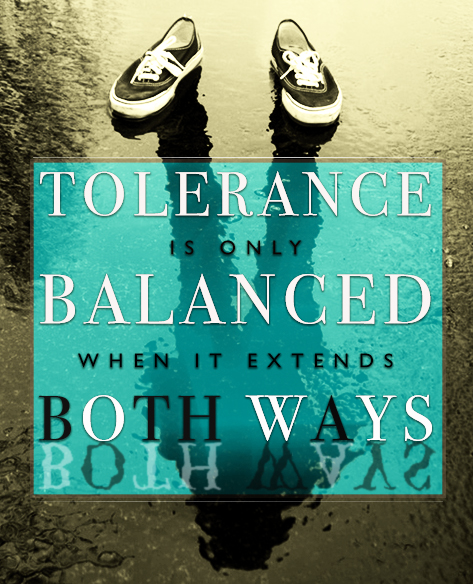The U.S. Senate recently voted 64-32 to pass the Employment Non-Discrimination Act, which, if passed into legislation, would make it illegal for an employer to fire an employee based on sexual identity. While the issue of same-sex marriage has been divisive among Americans, it seems they are uniting on the subject of other rights for homosexuals and same-gender couples. According to a recent Washington Post article, 60% of Republicans and 80% of Democrats—as well as majorities of every major religious group, including 59% of white evangelical Protestants—favor workplace protections for gay and lesbian Americans. [1]
Among the Senators who voted for the legislation were four members of The Church of Jesus Christ of Latter-day Saints—sometimes inadvertently called the Mormon Church. However, The Church of Jesus Christ has not taken a stance on the subject, but issued this statement:
Elected officials who are Latter-day Saints make their own decisions and may not necessarily be in agreement with one another or even with a publicly stated church position.
On the Employment Non-Discrimination Act (ENDA), the church has not taken a position. On the question of same-sex marriage, the church has been consistent in its support of traditional marriage while teaching that all people should be treated with kindness and understanding. If it is being suggested that the church’s doctrine on this matter is changing, that is incorrect.
Marriage between a man and a woman is central to God’s plan for the eternal destiny of His children. As such, traditional marriage is a foundational doctrine and cannot change. [2]
Although there has been some misconception that the position of The Church of Jesus Christ is changing on the issue of gay rights, this is not the case. Many evangelicals and Christians support anti-discrimination measures—but cannot support same-sex marriage. The two issues are distinctly different.
Christians Stand in Defense of Marriage
Christians—including members of The Church of Jesus Christ—stand in defense of marriage. Marriage is a sacred ordinance, or a sacred, solemn contract between a husband, a wife and God—and the terms are set by God Himself. The Family: A Proclamation to the World states:
The first commandment that God gave to Adam and Eve pertained to their potential for parenthood as husband and wife. We declare that God’s commandment for His children to multiply and replenish the earth remains in force. We further declare that God has commanded that the sacred powers of procreation are to be employed only between man and woman, lawfully wedded as husband and wife. …
The family is ordained of God. Marriage between man and woman is essential to His eternal plan. Children are entitled to birth within the bonds of matrimony, and to be reared by a father and a mother who honor marital vows with complete fidelity.
Elder Dallin H. Oaks, a member of the Quorum of the Twelve Apostles (with the First Presidency, the governing body of The Church of Jesus Christ), explained the views of Latter-day Saints:
Man’s laws cannot make moral what God has declared immoral. Commitment to our highest priority—to love and serve God—requires that we look to His law for our standard of behavior. For example, we remain under divine command not to commit adultery or fornication even when those acts are no longer crimes under the laws of the states or countries where we reside. Similarly, laws legalizing so-called “same-sex marriage” do not change God’s law of marriage or His commandments and our standards concerning it. We remain under covenant to love God and keep His commandments…. [3]
Strong Marriages are the Ties that Bind Families & Strengthen Nations
The late President Gordon B. Hinckley, the past president of The Church of Jesus Christ, said:
A nation will rise no higher than the strength of its homes. If you want to reform a nation, you begin with families, with parents who teach their children principles and values that are positive and affirmative and will lead them to worthwhile endeavors. … [4]
Conversely, if you want to destroy a nation, you begin by weakening the foundation—the family. Strong families are built upon strong marriages, with husband and wives who honor their marital covenants with complete fidelity. And strong nations are built upon the strengths of these families.
I have seen powerful examples of this in my own family this year. Both of my grandfathers died more than a decade ago. My grandmothers cared for their husbands and took care of them during their long illnesses—one of which lasted 17 years. This year, one Grandma decided it was time to sell her house and move in with my parents. She celebrated 50 years in her house, and had a huge party with her children, grandchildren and great-grandchildren—and all of us were there. Her family was there to help her pack up and move. And her children (all boys) have made sure that she is happy and comfortable in her new home.
My other Grandma, due to health issues, can’t drive anymore and must move in with my uncle and his wife. My aunt and uncle helped my Grandma take care of my Grandpa the last few years of his life, so he didn’t have to go to a nursing home. And at that time, they decided that when my Grandma couldn’t live alone anymore, she would move back in with them. This has been a more difficult adjustment. But I watched as my mom and her siblings have lovingly helped my Grandma through this loss of independence. They have made sure that she knows she is loved and valued—and wanted. Both of my Grandmas have shared their treasures with their posterity—and have found joy knowing that their treasures are going to their loved ones who will treasure them in return.
Both of my Grandmas passed down not only their earthly treasures—but the lasting legacy of true and pure love and commitment. And my parents and their siblings are setting the same example for their children and grandchildren. That’s the power of families—they take care of each other. Not just the parents and siblings, but throughout generations. This is the reason that a nation will rise no higher than the strength of its homes—and families. And each of these families began with the marriage of a husband and wife. That is the reason that Christians must protect the sanctity of traditional marriage.
In Support of Compassion
Supporting and defending marriage doesn’t mean there is no room for compassion. On the contrary, the Savior taught compassion, kindness and love one for another. Christians and evangelicals seek to follow these teachings, especially in the way they treat each other. Thus, many support certain rights for homosexual and lesbians. The Church of Jesus Christ issued this statement:
The focus of the Church’s involvement is specifically same-sex marriage and its consequences. The Church does not object to rights … regarding hospitalization and medical care, fair housing and employment rights, or probate rights, so long as these do not infringe on the integrity of the family or the constitutional rights of churches and their adherents to administer and practice their religion free from government interference.
The Church has a single, undeviating standard of sexual morality: intimate relations are proper only between a husband and a wife united in the bonds of matrimony.
The Church’s opposition to same-sex marriage neither constitutes nor condones any kind of hostility towards homosexual men and women. Protecting marriage between a man and a woman does not affect Church members’ Christian obligations of love, kindness and humanity toward all people. [5]
Tolerance for Religious Freedom
A very disturbing trend in America today is the attempt to shame those who oppose same-sex marriage into silence. This is not true freedom—for anyone. Elder Oaks said:
For persons who believe in absolute truth, tolerance for behavior is like a two-sided coin. Tolerance or respect is on one side of the coin, but truth is always on the other. You cannot possess or use the coin of tolerance without being conscious of both sides.
Our Savior applied this principle. When He faced the woman taken in adultery, Jesus spoke the comforting words of tolerance: “Neither do I condemn thee.” Then, as He sent her away, He spoke the commanding words of truth: “Go, and sin no more” (John 8:11). We should all be edified and strengthened by this example of speaking both tolerance and truth: kindness in the communication but firmness in the truth. [6]
For Disciples of Christ, there is no tolerance without truth. You cannot have one without the other. Religious liberty is the freedom to think, believe and act according to our deeply held beliefs. Anything less is a fraudulent version of freedom. This is no excuse for mistreatment of anyone. But simply standing up for one’s beliefs should not be an invitation for contention—or a lawsuit.
Stories of people of faith who face retaliation and punishment for refusing to cater, photograph or otherwise condone a same-sex wedding are becoming more commonplace. This is truly a travesty of American democracy. It’s never easy to stand up for one’s beliefs. We should applaud all who have the courage to do so. And when we start punishing people instead of applauding them, Lady Liberty’s lamp dims a little more with each infringement—and everybody loses. Elder Oaks said:
The spirit of our balance of truth and tolerance is applied in these words of [the late] President Hinckley: “Let us reach out to those in our community who are not of our faith. Let us be good neighbors, kind and generous and gracious. Let us be involved in good community causes. There may be situations where, with serious moral issues involved, we cannot bend on matters of principle. But in such instances we can politely disagree without being disagreeable. We can acknowledge the sincerity of those whose positions we cannot accept. We can speak of principles rather than personalities.” [6]
Finding the Balance
Anti-discrimination measures such as ENDA seek to eliminate unjust and unfair treatment of people based on their sexual identities. However, there must be a balance. Tolerance must extend both ways. Gay rights must not overshadow religious liberties. Christians must be allowed to disagree with the homosexual lifestyle and same-sex marriage without being harassed and punished for their beliefs. Elder Quentin L. Cook, an Apostle of Jesus Christ, said:
Let me be clear that all voices need to be heard in the public square. Neither religious nor secular voices should be silenced. Furthermore, we should not expect that because some of our views emanate from religious principles, they will automatically be accepted or given preferential status. But it is also clear such views and values are entitled to be reviewed on their merits. [7]
The time has come for all sides to work together—the good, old American way. America is the Great Melting Pot because it’s where diverse groups of people have learned to live together in peace despite their deepest differences in culture, backgrounds and beliefs. They built on their commonalities and respected their differences. That is the greatness of America. And Americans, it seems, have not forgotten what makes them truly special: the ability to work together. Working together requires us to find a common ground and build on that. That doesn’t mean that we agree—it just means that we agree to get along while respecting each other’s beliefs. And respecting each other’s beliefs requires us to listen to them—even if we don’t agree—without silencing any voices or opinions.







